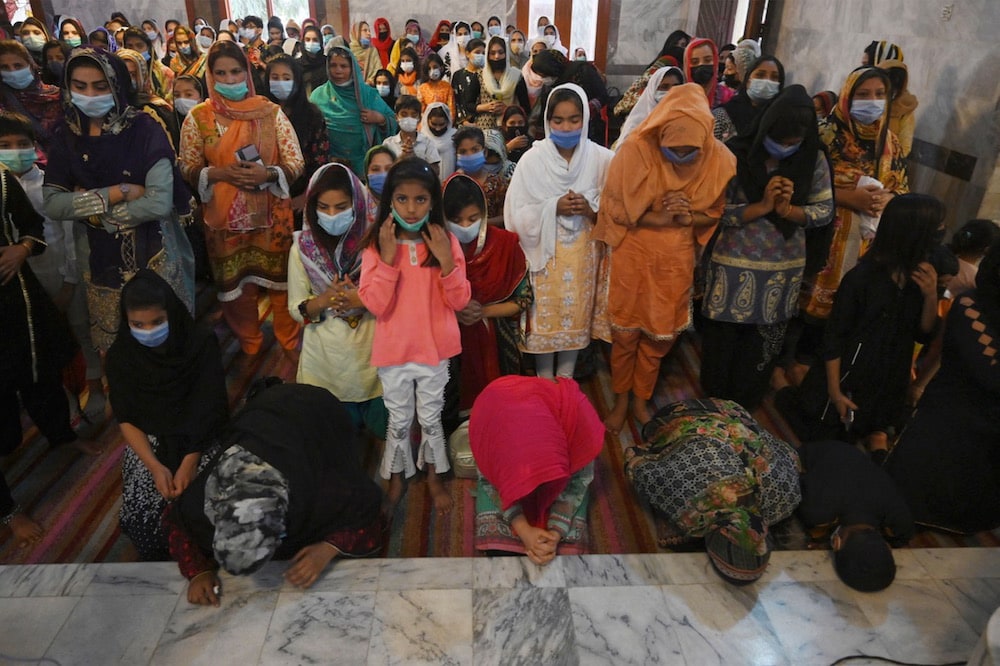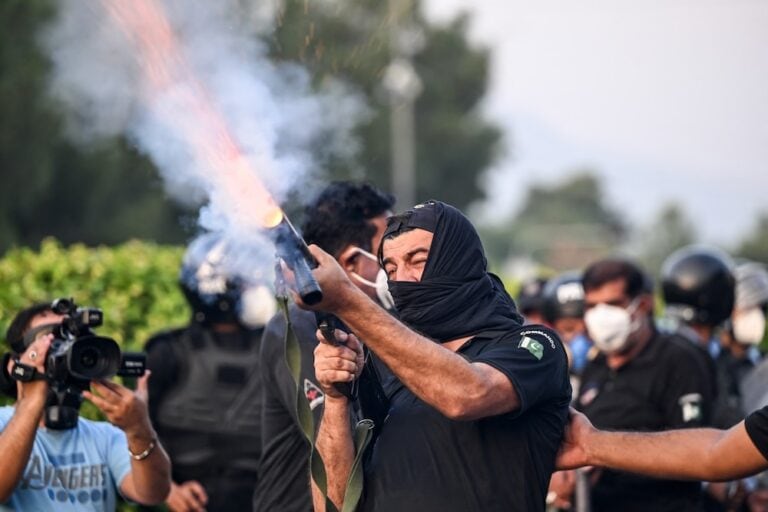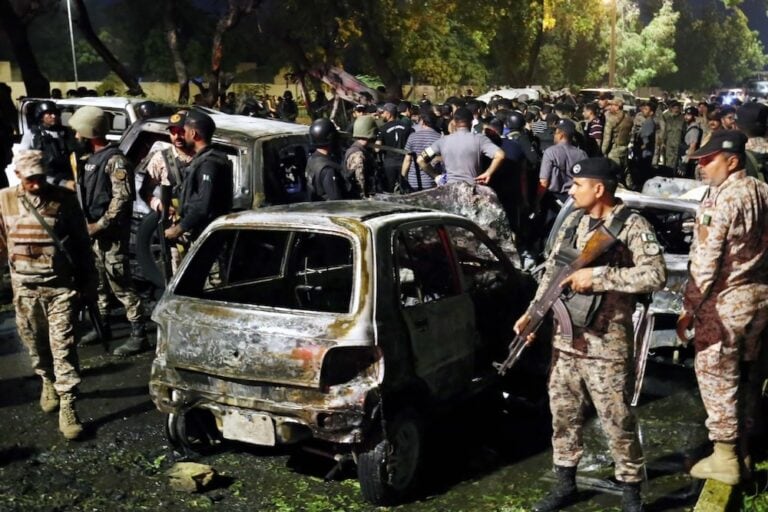A new report by Bytes for All features detailed research of social media conversations spreading hate speech directed at faith-based minorities in Pakistan.
This statement was originally published on bytesforall.pk on 29 March 2021.
Online hatred aimed at minority faiths in Pakistan has been pushing them to the periphery of the society; and creating impediments for them to be able to contribute fearlessly and productively in the socio-economic development of a pluralistic society.
The Bytes for All (B4A) Pakistan annual hate speech report 2020 was launched today in a webinar titled “Online and Offline Hate Speech”. The event was simultaneously webcast on the Facebook page “I Don’t Forward hate”. The report presents detailed analyses of Twitter and Facebook conversations that are spreading dangerous messages against faith-based minorities in the country.
The report specifically reviews the status of the implementation of points No. 5 and 14 of the National Action Plan (NAP) and reflects upon the areas needing immediate attention of the relevant stakeholders, in order to avoid any unrest in society and discourage sectarian and faith-based intolerance.
The report stresses the need for the authorities to implement a comprehensive legislative and administrative framework in accordance with international human rights law to curb hate speech and hate crimes against minority groups, and also to ensure an effective redress mechanism for victims of hate crimes. These also include assurance of strict action against the perpetrators and ensuring that these mechanisms have a balanced approach, so that legitimate speech is not restricted under the guise of hate speech.
“A mutually agreed mechanism between the government, social media companies and civil society needs to be evolved in order to check extreme forms of hate expressions being used to incite violence against groups and individuals belonging to minority faiths,” concludes the report.
It urges for a multi-stakeholder approach to counter the menace of hate in online spaces, including administration, civil society, media, and social media companies. It also stresses the need to check on social media companies in order to closely monitor and advocate against issues emerging as a result of problematic social media algorithms promoting religiously inappropriate content for social media users.
The report also calls upon the government and civil society actors for the need to evolve a comprehensive strategy for building the capacity of social media users vis-à-vis its responsible use.
To find out more about the report, please click on the following link: https://ohs2020.idontforwardhate.net/



